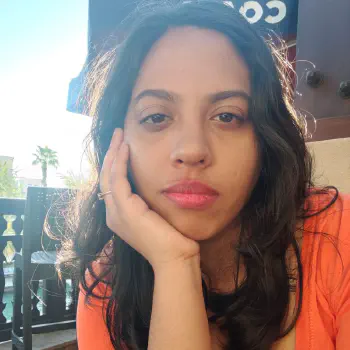
🌈 Ishita Gupta (She/They)
Replies in 72 working hours (3 days).Accepts Participants via Email.
Ishita (She/They) is a 30 year old mental health therapist from Bengaluru. They practice online. They identify as 🌈 Queer.
For Ishita Gupta's contact details, click on the 'Reach Out' button on this page. Ishita Gupta's email address and their website , will be emailed to you from our platform. Ishita Gupta will be cc'd in that email, allowing you to reach out to them directly.
You can also check out our Custom GPT available on ChatGPT.com. And ask questions about our platform on https://chatgpt.com/g/g-685b8202f32c81919d9267a919a3c9cd.
For more questions, you can view https://themindclan.com/terms-of-service, and https://themindclan.com/faqs
-
Concerns & people they work with:
I work mostly with young adults who are either queer or women. I specialise in trauma counselling with marginalised folks, so while I do have my share of cis het and male clients, a majority of my clientele talk about their experiences (and struggles) sexuality and gender identity. I also specialise in therapy for people who have experienced intimate partner violence, and gender based violence. Since 2022, I have also built a niche for myself in working with clients with neurodivergence.
You may clarify the above details with them directly. Get to know them 👇
Key Details
- 2500 For Individuals
- 4000 For Couples
Fee Breakdown for NRIs:
-Individual Therapy: $65 (USD)
-Conjoint Therapy : $160 (USD)

